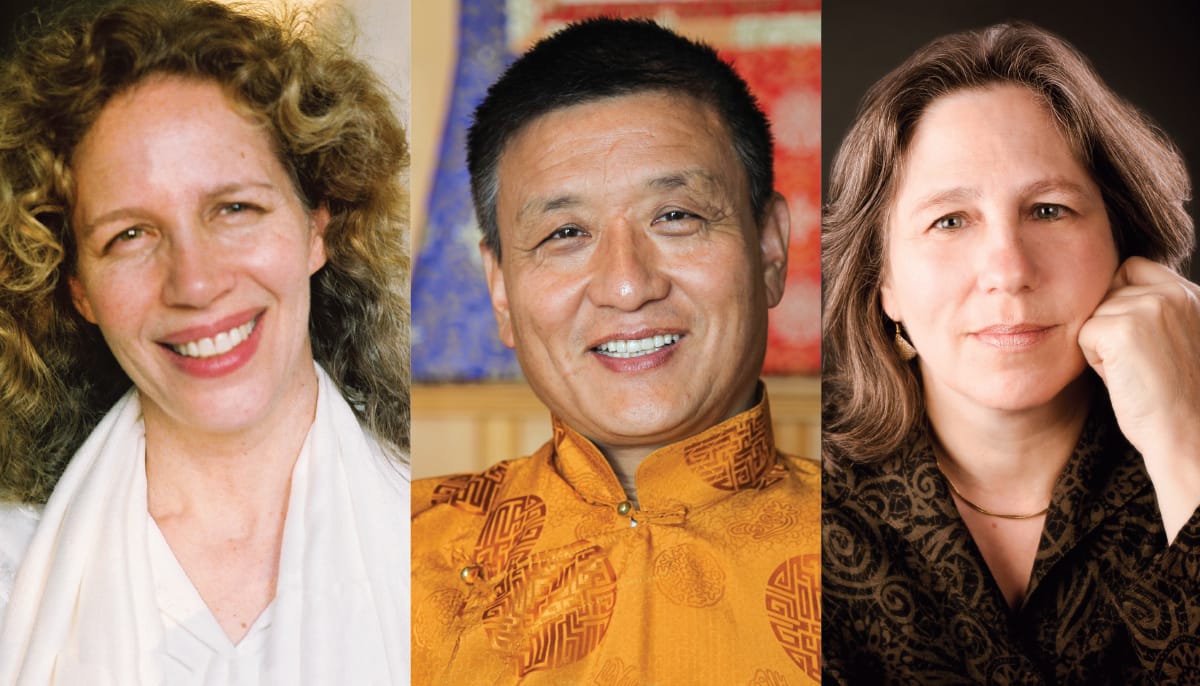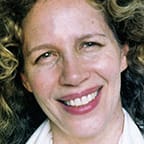Question: I recently attended a dharma talk in which the teacher said that laypeople, even if they practice sincerely, just don’t have the proper causes and conditions for full enlightenment. I feel that I need to know if this is true or not. What possibilities does this practice hold for me as a layperson? And what is beyond my reach? Please tell me honestly.
Narayan Helen Liebenson
I have heard this same thing myself, and if I believed it, I would have ordained long ago. In the early teachings of the Buddha, however, there is nothing to support this view. Rather, there are stories of all different types of laypeople from many different walks in life who were said to have awakened to the highest happiness. The Buddha said all we need is a body and a mind.
However, your question points to something deeper. In the sutras, the Buddha does point to ordaining as the optimal form for awakening. This is likely because of the tremendous ever-present distractions of daily life, which have changed forms from the time of the Buddha but are probably much the same otherwise. As we know, it is possible to spend immense amounts of the day distracting oneself instead of engaging in practice.
Perhaps the reason some teachers teach that lay life is counter to inner freedom is because it’s so easy to approach practice in daily life with mixed intentions. Although we may sincerely aspire to the cessation of suffering, our actions aren’t always in alignment with this aspiration. Awakening asks for a far stronger intention and commitment than we may be willing to give.
This is why most lay practitioners combine daily life practice with retreats. The environment of retreat life, with its emphasis on simplicity and silence as well as the bare forms of sitting and walking, allows for sustained contemplation. Keeping alive the understanding that this moment matters whatever the content, as well as retreating for various periods of time, seems to be a wise combination of undistracted intention and expressing this intention in the ordinariness of daily existence.
The questions to ask yourself are these: What are my priorities, and am I living them in each moment? Can my life align with my longing for inner freedom? If yes, then no rules, conditions, or circumstances are better or worse. One of the benefits of lay life practice is that no one and no tradition is telling you what to do on a daily basis. The fires of life have to be seen into thoroughly so that there is no longer a fear of conditions.
I would encourage you not to depend on the opinions of others and to find out for yourself. Different teachers will continue to have different views about this question. If doubt continues to haunt you, then ordaining would be the only way to find out for yourself if it is so.
Tenzin Wangyal Rinpoche
This question is very complicated doctrinally. My simplest comment is that first, this teacher’s comment is a generalization. To state that a layperson lacks the proper causes and conditions to achieve realization comes from a particular doctrinal view. There are different Buddhist doctrinal systems, paths, and traditions, and they have varying views on the attainment of enlightenment, or liberation from cyclic existence. There are Buddhist doctrines that state that a person cannot achieve full liberation if one does not maintain monastic vows and commitments. There are even doctrines that state that it is not possible to achieve liberation if one is in the form of a woman. And there are views that state that it is not possible to attain liberation in one lifetime.
The different points of view can be summarized in three basic approaches to enlightenment within the Buddhist teachings: sutra, tantra, and Dzogchen. Sutra emphasizes renunciation as the path to liberation. Tantra emphasizes transformation—not avoiding our emotions but engaging them through skillful means that transform confusion into wisdom. In Dzogchen, the five poisons are nakedly and directly engaged as the way to liberation. For the Dzogchen practitioner, afflictions, emotions, and pain become the ornament or way of exercising the dynamic energy of the enlightened mind. This is the tradition in which I study, practice, and teach.
According to the sutric path of renunciation, the vows of a monastic are necessary supports on this path. If you are a householder, it is difficult to renounce because you are immersed in childrearing and commerce, and it is difficult to get rid of attachments. The monastic system is a beautiful and complete path for the one who enters it, but the path of renunciation is only one path.
According to the Dzogchen teachings, you can achieve full liberation in one lifetime regardless of whether you are male or female or live a lay or monastic lifestyle. Many realized masters and practitioners of the Dzogchen lineages were laypeople, both men and woman. Many have attained liberation from suffering through engaging wholeheartedly in the teachings of the Dzogchen lineages in the Bön and other Tibetan Buddhist schools. And many teachers and teachings exist that articulate a path to complete enlightenment for the layperson. These teachings have been successfully practiced for thousands of years and are now available in the West. Here, they are followed by mothers and fathers, lawyers and waiters, actors and artists, all dedicated practitioners who are intent on enlightenment for the benefit of others.
Half of my life I have been a monk, and half I have lived as a lay practitioner. Having a wife and child and living an engaged family life has greatly enriched my spiritual path. Please do not lose heart on your path. I encourage you to connect to your sincere wish to be free of suffering and to live a life that benefits others. Continue looking for a teacher and teachings that will support you to accomplish this.
Sallie Jiko Tisdale
If the teacher had said that black people did not have the proper causes and conditions for enlightenment, would you wonder if he was right? What if he had said that gay people or women or Americans did not? Such things have been said before.
There are no true obstacles to full enlightenment—nothing in space or time. How can there be? Even a casual reading of the sutras shows us a Buddha of great generosity and kindness, predicting and celebrating the inevitable buddhahood of many beings in many forms. There have always been highly accomplished and respected laywomen and men in Buddhism. A few, such as Vimalakirti and Queen Srimala, have their own sutras.
Buddhism is a human institution, created by and sustained by humans. The dharma—the truth—is our main concern; Buddhism is just a way of talking about it. The practice and the teacher, even the Buddha himself, are tools to help us awaken our original enlightenment. If Buddhist practices—or teachers—cut you off from the truth, there is a serious problem.
The Buddha often advised his lay followers to avoid certain occupations, such as butchery, because of their coarsening effects. He exhorted people to leave behind a busy social life and obligations that distract or confuse. I really believe that time spent in retreat is important. The relationships formed in a sangha can be of great benefit. Material simplicity and routine allow us to develop a regular habit of meditation and reflection. These help create the environment in which we come to terms with ourselves and our karmic preoccupation and confusion. All of this is helpful, but only because it allows our natural enlightenment to be more transparent to us. Such a life is not limited to ordained people.
There are great advantages to lay practice. There is no hiding from one’s karmic triggers, no way to avoid the hard choices of living among the sentient beings of the world. There is no better place to find out if the lessons of zazen and study have borne fruit than to go to the workplace and come home to care for a family. I can think of no place where the spacious view of the self will be of more use to ease the suffering of the world than in the midst of the world.
It is wrong to think that anything is lacking in you or your potential, or that any thing is necessary for enlightenment. We will feel an urge to describe and qualify enlightenment, because the inexpressible is not something we grasp with our minds. Remember that any external quality is just another kind of change. Can enlightenment require mutable conditions? To say so is to denigrate enlightenment. It needs no particular practices or ceremonies, does not look a particular way, and does not require a certain lifestyle.
Don’t think you are on one side or the other of a path to enlightenment, that enlightenment is something you obtain or achieve, that enlightenment is promised to some and not others, that a particular way of life is required. We are all held in the promise of enlightenment.




